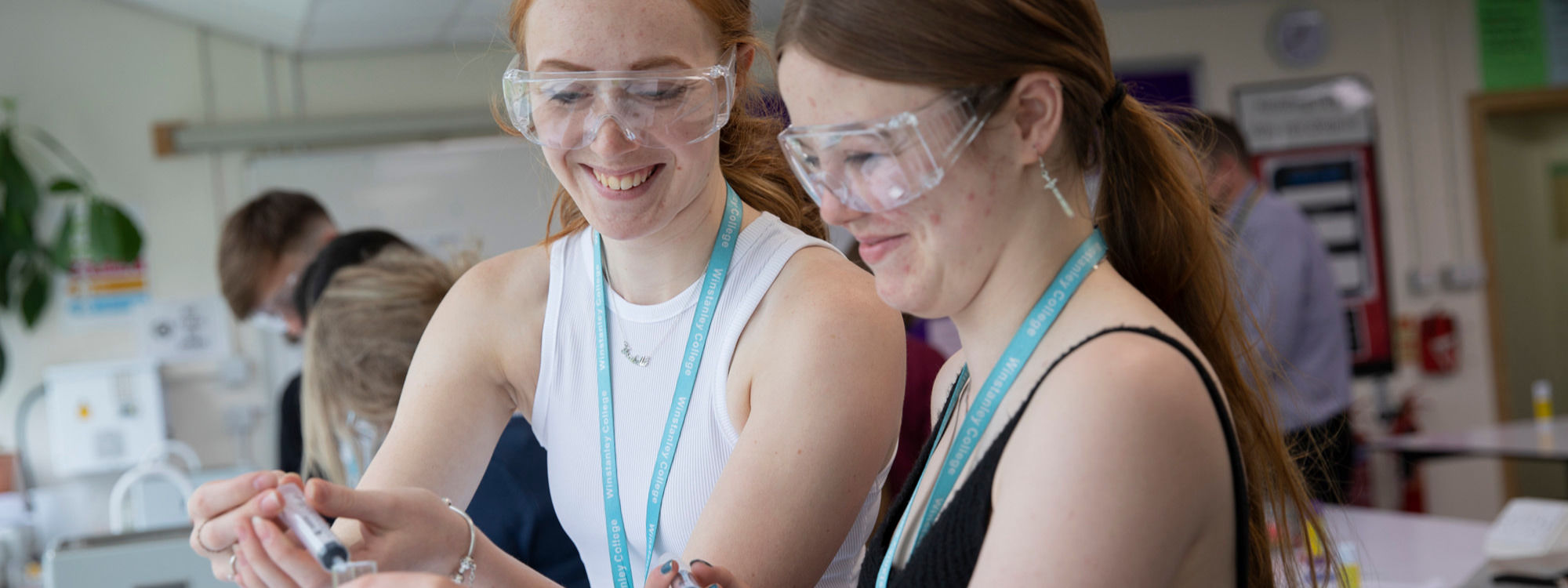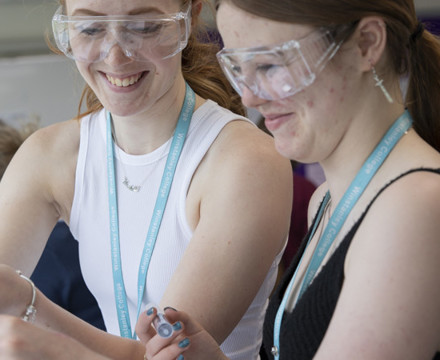- Home
- Curriculum
- Course Search
- Biology
Biology
The study of living organisms and their interactions.
Why study Biology?
Are you fascinated by how the human body works? How exactly do plants and animals live and die? Do you want to develop your understanding of biological functions well beyond that which you learned at GCSE? You’ll find Biology both familiar from GCSE and very different as you continue to journey into the complexities and intricacies of life. You’ll integrate theory and practical work.
Reading a popular science book such as The Body: a guide for occupants by Bill Bryson or Almost Like a Whale by Steve Jones could fuel your passion.
What will I study?
We have written our scheme of work to include eleven units across the two years of the course.
Year 1
- Unit 1 – Biological molecules
- Unit 2 - Cells
- Unit 3 - DNA: structure and function
- Unit 4 - Exchange of substances
- Unit 5 - Biodiversity
- Unit 6 - Ecosystems and sampling
Year 2
- Unit 7 - Cellular biochemistry
- Unit 8- The nervous system
- Unit 9 - Gene expression
- Unit 10 - Gene technology
- Unit 11 - The endocrine system
Entry requirements
If Triple Science: 6 or above in Biology, Physics and Chemistry and at least a grade 6 in Maths
If Double Award: 6 or above in both sciences and at least a grade 6 in Maths
Which exam board & how will I be assessed?
AQA Biology
It is assessed via three 2-hour written examinations.
Students also receive a practical endorsement for the lab and field work completed during the course.
Where could it take me?
Biology can take you anywhere depending on the combination of courses you choose. Students who take Biology with Chemistry and Maths often go on to take courses in medicine, dentistry, veterinary medicine, and other healthcare-related courses. Students have attended universities as varied as: the University of Liverpool, the University of Manchester, Imperial College London, Oxford University, Cambridge University, Loughborough University and LJMU. Many non-health-related courses also benefit from a good grounding in data analysis and experimental technique, so students could go into a wide variety of roles in the future.
Subject combinations
Chemistry and Maths are the most common combination of subjects. There are many subjects that have links with Biology, including Psychology, Physical Education, Geography, Geology and Dance.
What support is available?
We provide you with one-to-one or group tutorials, course booklets, access to video lessons, practical skills sessions, quizzes, further reading and a bank of key questions to test yourself on.
You will receive help with choosing which university and course is right for you; we’ll support your development of interview skills.
What extracurricular activities are available?
Biology Olympiad, Nuffield Bursary Scheme, educational visits to university and research laboratories, Biology Book Club, STEM club and guest speakers.
Did you know?
The Biology course is one of the most versatile A-level subjects, leading to an extremely broad range of future careers. Students taking Biology have access to our Biology YouTube channel. This has on-demand video lessons produced by our staff for many units of the course and is valued by our current students as a fantastic revision resource.















